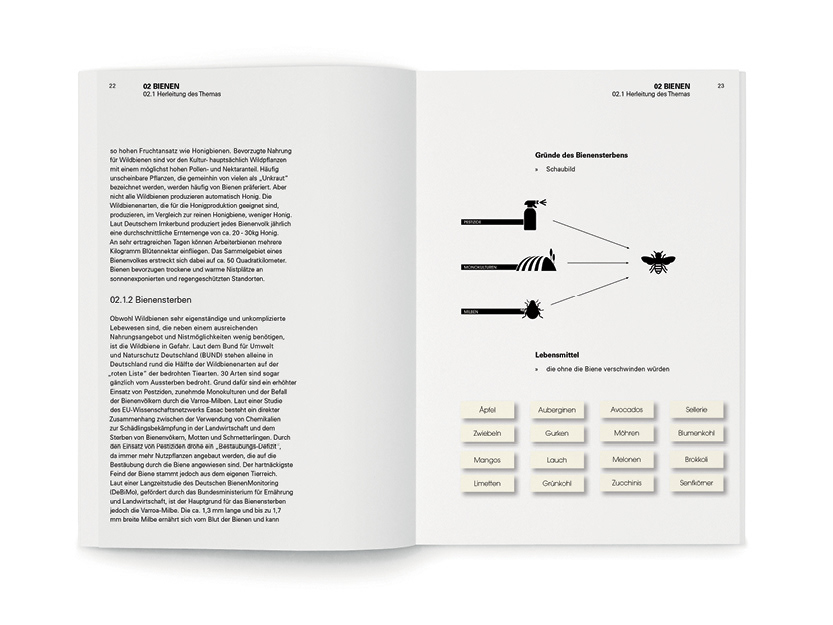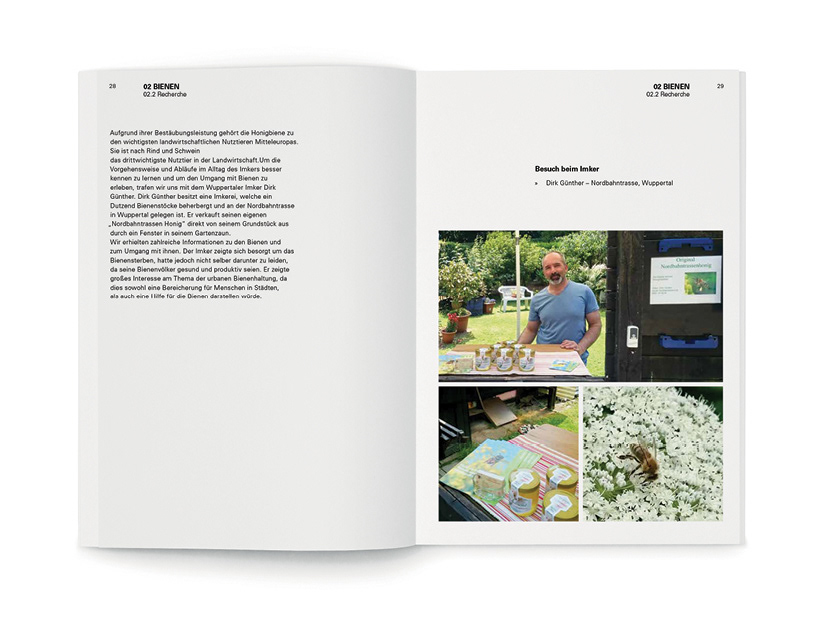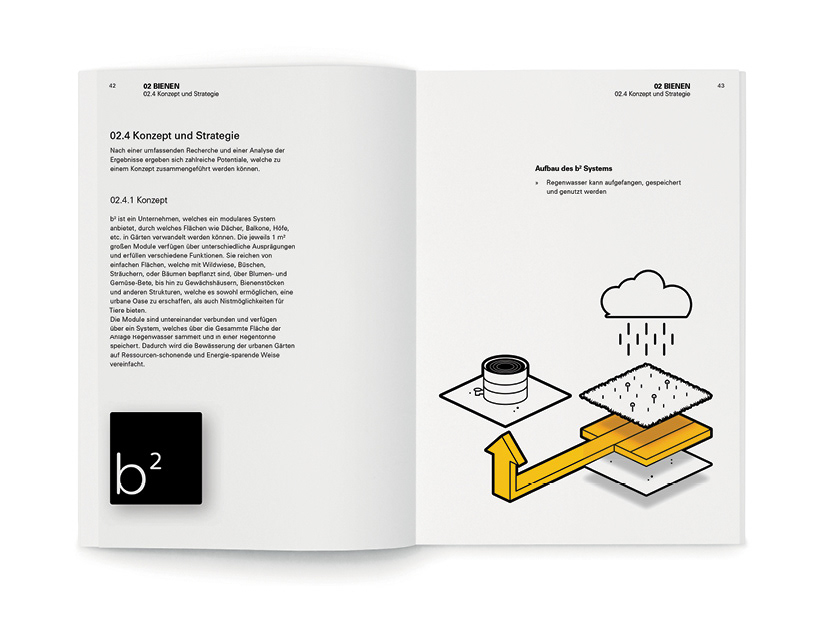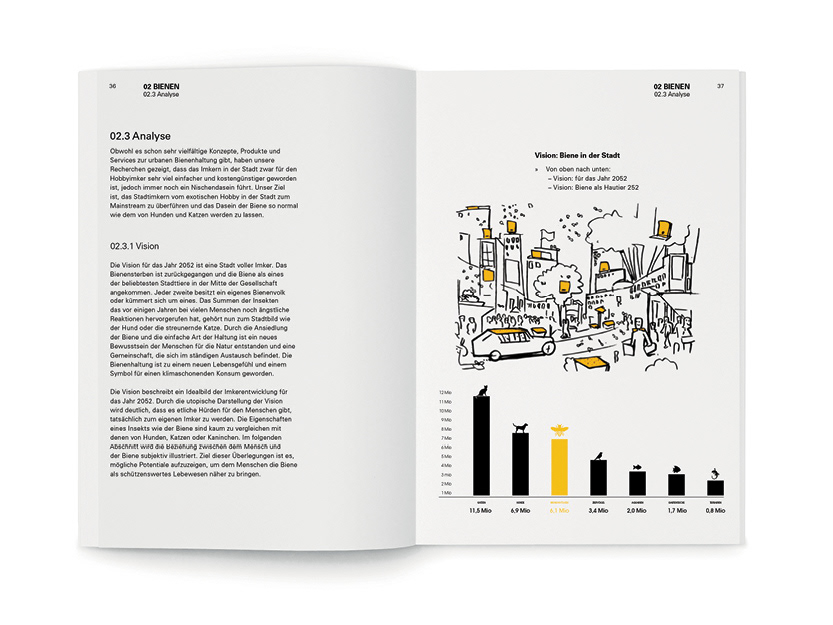April 2015 – February 2016
University of Wuppertal, Strategic Innovation in Products and Services
Collaboration with Club of Rome and Wuppertal Institut
Cooperation with Benedikt Neuhäuser
zwanzig52 was an appeal from the Club of Rome to design students worldwide for the creation of sustainable concepts to positively influence the world until the year 2052. We chose the bee as an ideal ambassador for sustainable development.
The bee is an essential part of our ecosystem, but the insects population is declining worldwide. Pesticides, mites and a dwindling habitat are the reason. At the same time, various animal species are finding new homes by reconquering cities. Even urban beekeepers are emerging.
Our concept was awarded the 2nd prize during the zwanzig52 award ceremony at the Folkwang University of the Arts in Essen.




Development of a strategy
The project started by researching the subject of beekeeping on multiple levels. Quantitative research methods were applied to an internet community of beekeepers and qualitative research was conducted by interviewing local beekeepers. The research findings uncovered two major potentials when trying to improve the popularity of urban beekeeping: First, a community network needs to be established in order to connect people and competencies amongst each other. Secondly, the bee needs a positive image campaign in order for the majority of people to accept it in their direct environment.
A business model, revolving around the creation of a community and the simplification of planning urban gardening and beekeeping, was created.
The concept for the digital platform consists of two parts. The user is able to plan his or her urban gardening or beekeeping endeavour and can also connect with other interested people to get in touch and exchange competencies, know-how and tips.
A method of planning urban gardens digitally – square meter by square meter – was composed. The modules vary from simple patches of soil to pre-installed structures such as beehives, sheds and solar panels. Suppliers of the necessary technologies have been contacted to evaluate feasibility.
From our user research, we have created personas to simulate different use-cases in an urban environment and how they would interact with each other – relying on synergies.